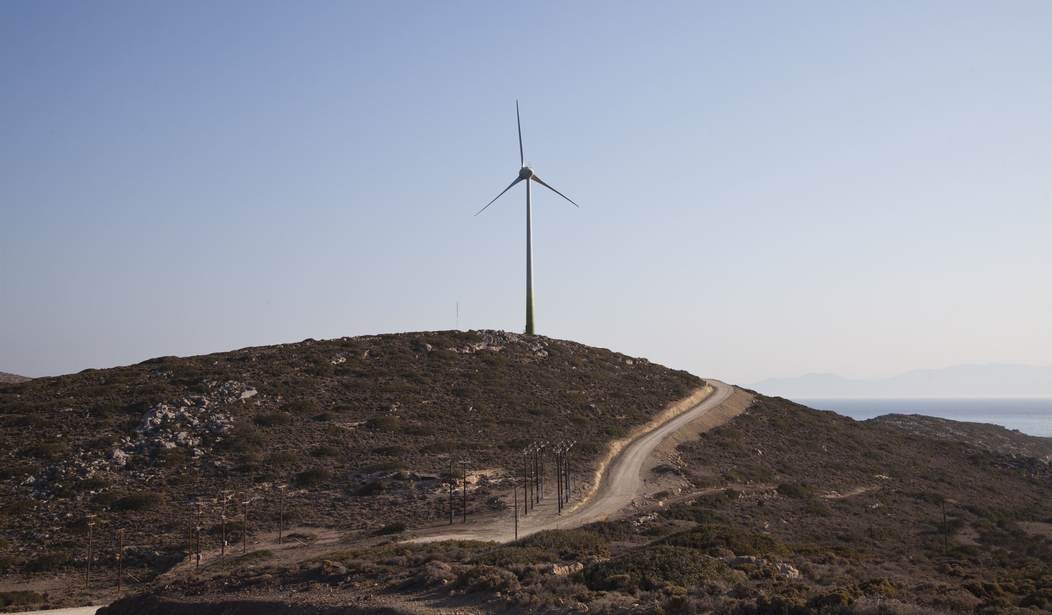Stranded assets are "assets that have suffered from unanticipated or premature write-downs, devaluations, or conversion to liabilities." If you, say, bought a Betamax video-cassette recorder back in the day, that Betamax machine would have become a stranded asset once the VHS format won the great video-tape war. One could say that the 8-track player in my 1979 Thunderbird was a "stranded asset," once cassettes took over. (And, oh, man, was that ever a cool car.)
Those are small examples. There are also big, industrial-scale examples. And here's what's great: It's looking like a lot of these big solar and wind power installations are on their way to becoming stranded assets.
Manhattan Contrarian scribe Francis Menton has some details.
How quickly things change. It was only two years ago, in 2023, that I was writing posts compiling long lists of quotes from climate activists warning that all assets used for production of coal, oil and gas were about to become obsolete and “stranded.” After all, wind and solar were (supposedly) cheaper and cleaner for generating electricity, which could then power anything and everything. Therefore anyone stupid enough to make further investments in producing fossil fuels would lose everything. Here is one such post from June 2023, and another from February 2023.
If you look today, you can still find predictions in 2025 that fossil fuel assets will shortly become “stranded.” (Here is one from Bloomberg from March 6: “Investors Risk $2.3 Trillion of Stranded Fossil Fuel Assets.”). But such predictions are becoming fewer and fewer. Instead, what looks far more likely is that large portions, if not the entire business, of “renewable” electricity generation from wind and sun is likely to get “stranded.”
Reality would like a word. Solar and wind power can't replace coal, oil, gas, and nuclear power. These "renewables" lack the constant supply required; they are neither reliable enough nor have enough energy density compared to their footprint to power our entire, increasing electricity demand alone. And, we should bear in mind that much of our modern technology depends on oil and byproducts of the oil and gas industry for a huge variety of other commodities, from plastics to industrial chemicals.
The Brits would do well, in this topic and others, to give Nigel Farage's Reform Party a good look; they are the only ones in Britain talking sense on this topic.
Two days ago, on July 16, the Deputy Leader of the Reform Party, Richard Tice, wrote to heads of UK renewable energy companies to advise them that a Reform government headed by Nigel Farage would terminate the subsidies for wind and solar energy. Here is a copy of one such letter sent by Tice to Greg Jackson, CEO of Octopus Energy; and here is a July 17 press release from Net Zero Watch publicizing Tice’s initiative. Tice’s letter specifically warns wind developers that if they are granted subsidies in an upcoming round of handouts from the Labour government dubbed “AR7,” a future Reform government will not continue those subsidies:
Let me be clear: if you enter bids in AR7, you do so at your own risk. The political consensus that has sheltered your industry for nearly two decades is fracturing. Reform UK will not be bound by the assumptions or commitments of this failing Labour government.
Note that this will only happen if the Reform Party manages to either capture an outright majority (unlikely) or make some kind of coalition with the Tories (somewhat more likely) to put an end to government subsidy of green energy boondoggles.
That, however, is Britain's problem.
Read More: A Time for Choosing: Climate Panic or Prosperity
Here Are Three Natural Gas Projects That Will Save American Energy
Here in the United States, we're moving ahead on just this:
Back here in the U.S., the Trump administration and Congress have now, via the One Big Beautiful Bill Act, put apparent end dates on subsidies to new wind and solar projects not yet initiated; but they have not threatened to pull subsidies from wind and solar projects that have gotten built based on a commitment of subsidies (particularly tax credits) during the useful lives of the facilities. As such, there would appear to be reason for owners of existing wind and solar facilities to hope that their investments will not become stranded. But it is not a sure thing.
Bear in mind that this situation is as ephemeral as the Republican Party's control of the executive and legislative branches. A Democrat takeover of government would no doubt see subsidies for an explosion of new "green" boondoggles yet again - and if you want one more reason to go vote in the midterms and in 2028, here you are.
Granted, as I've pointed out many times, there are places and situations in which solar and wind power are practical, even desirable. We know people here in Alaska who are off-grid, who rely on solar power in summer, and on diesel generators in the winter. But customers, markets, must make those decisions, not the government.
Government subsidies for private enterprise like this always run up against reality, sooner or later. Why? Because the product or service is subsidized, if it were economically viable, it wouldn't need the subsidies. In time, these enterprises will fail, and in this case, the sooner, the better.













